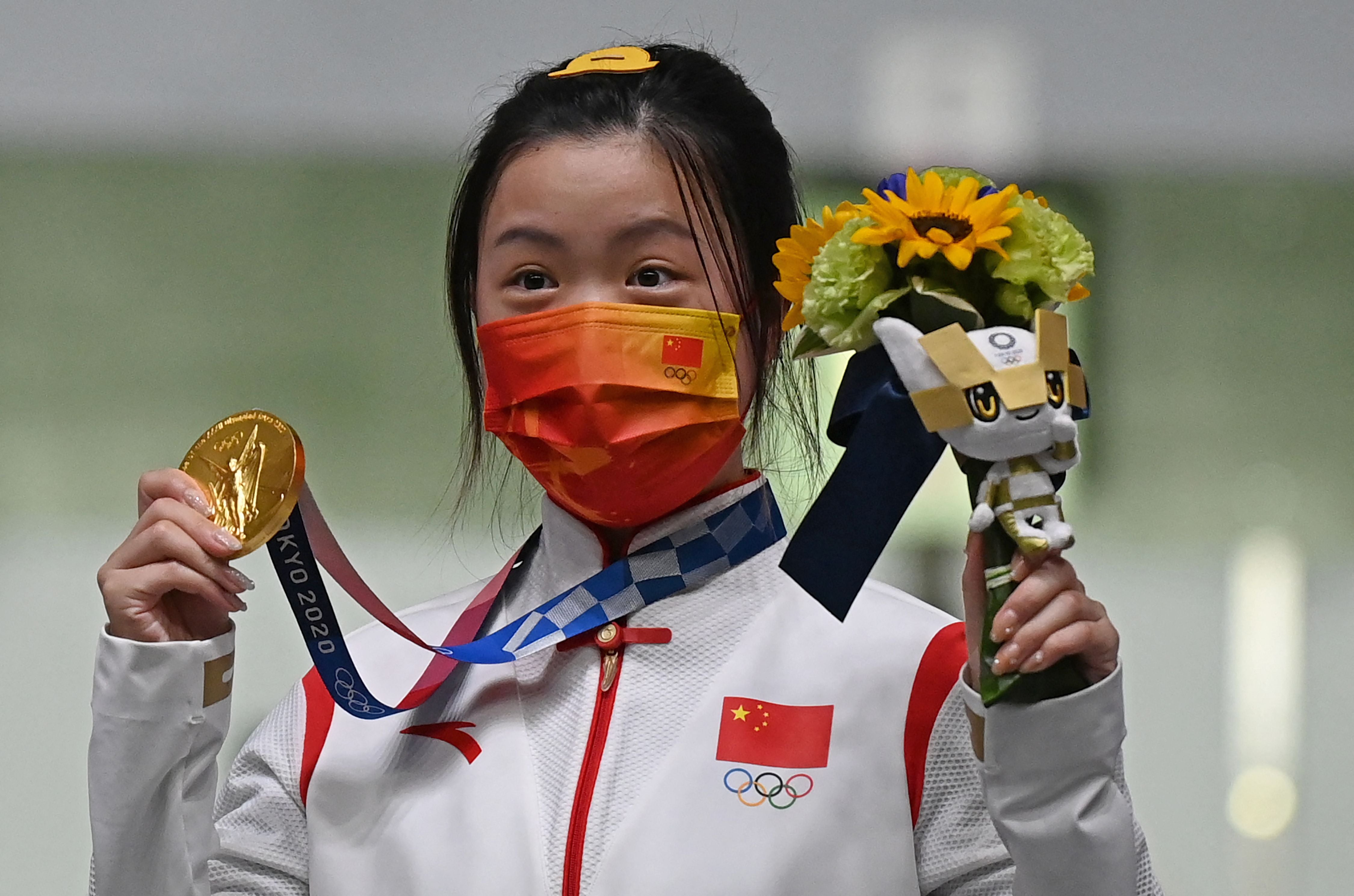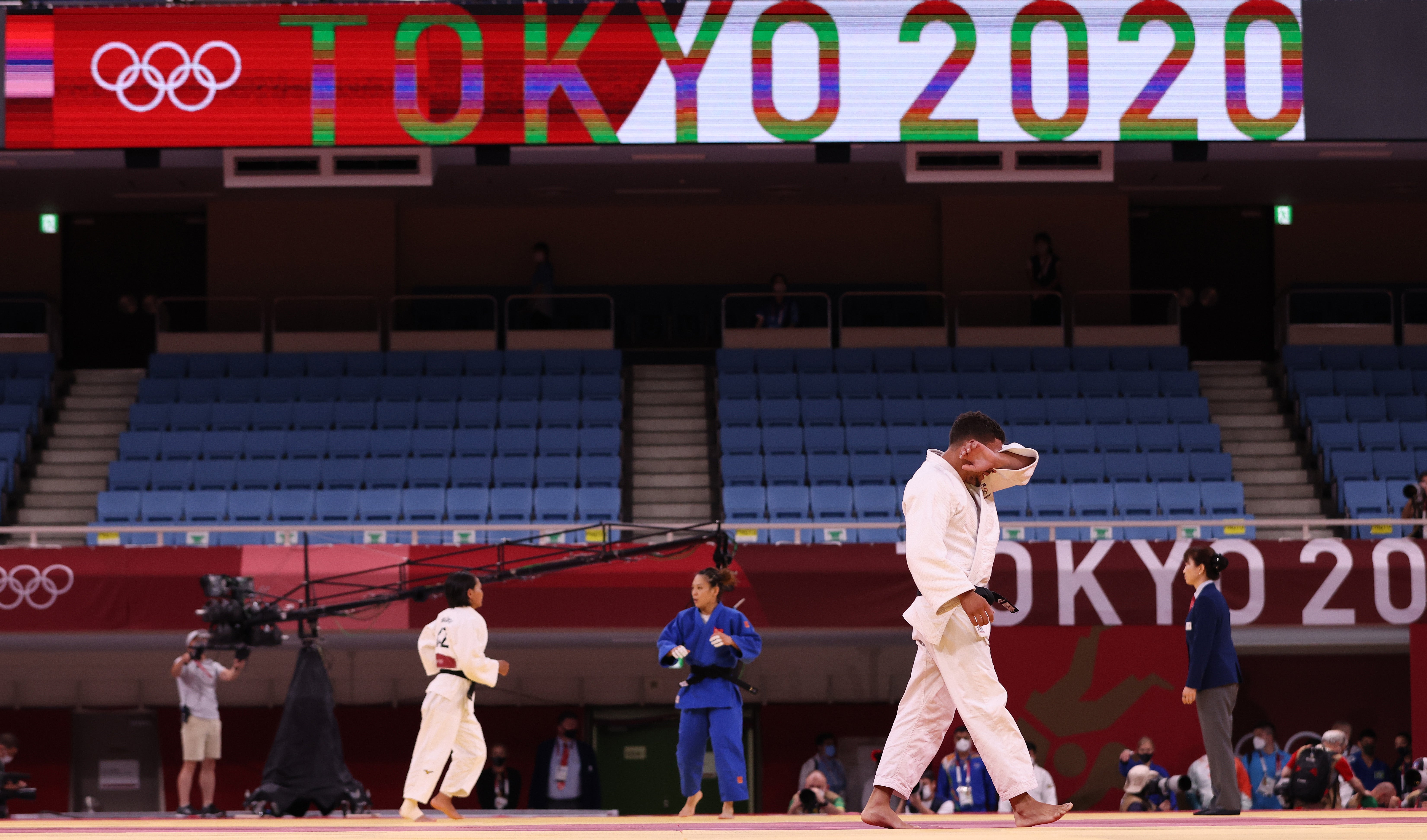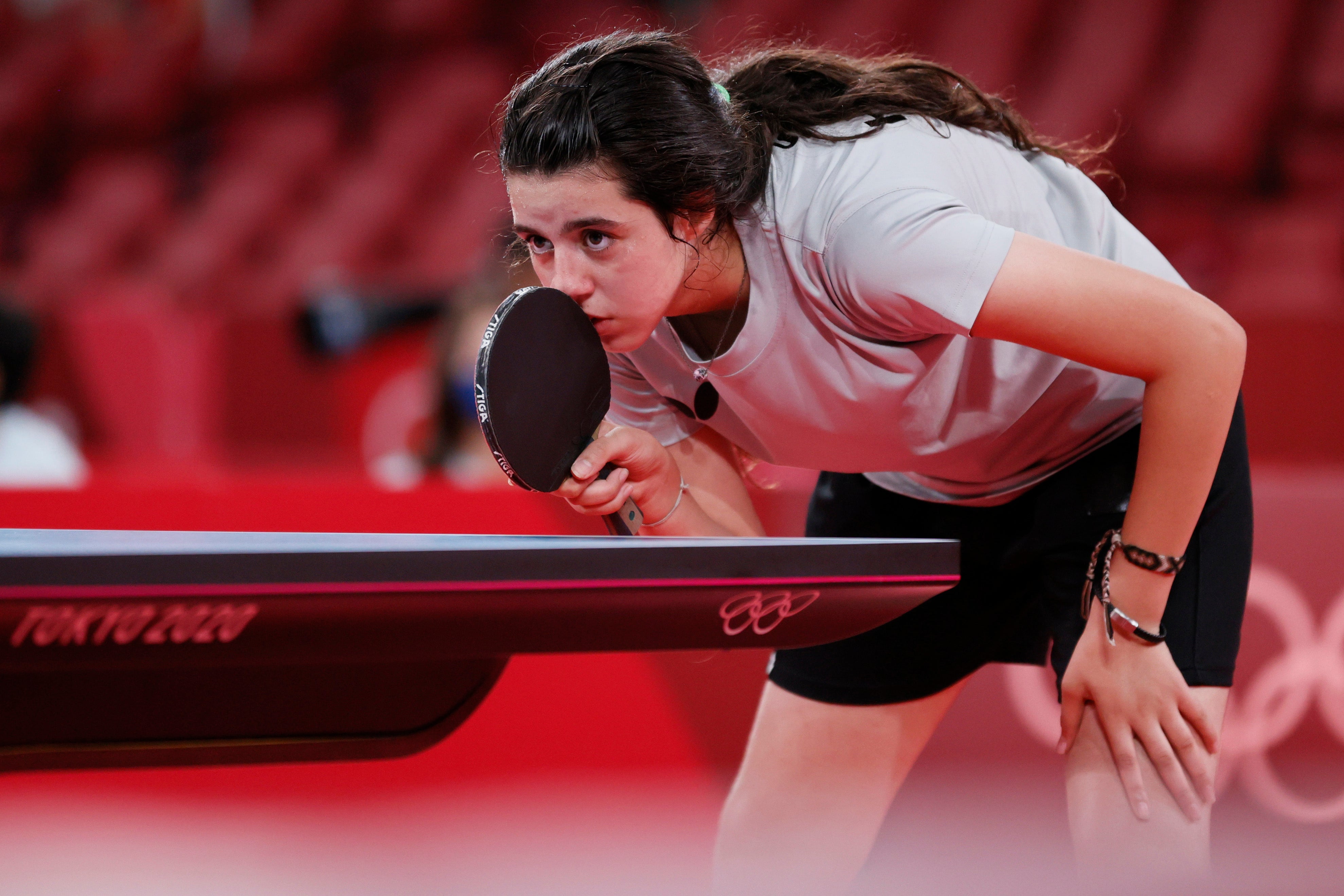Tokyo Olympics begin with familiarity and discomfort ahead of uncapped highs and desperate lows
An action-packed start produced glory, despair and controversy, as the Games knows only too well
Your support helps us to tell the story
From reproductive rights to climate change to Big Tech, The Independent is on the ground when the story is developing. Whether it's investigating the financials of Elon Musk's pro-Trump PAC or producing our latest documentary, 'The A Word', which shines a light on the American women fighting for reproductive rights, we know how important it is to parse out the facts from the messaging.
At such a critical moment in US history, we need reporters on the ground. Your donation allows us to keep sending journalists to speak to both sides of the story.
The Independent is trusted by Americans across the entire political spectrum. And unlike many other quality news outlets, we choose not to lock Americans out of our reporting and analysis with paywalls. We believe quality journalism should be available to everyone, paid for by those who can afford it.
Your support makes all the difference.Medals, crushing disappointment, socio-political controversy and positive Covid tests. Don’t all yell out “BINGO” at once.
It was always going to be that the official opening day of these Tokyo Olympics threw up a tasting menu of how the next two and a bit weeks will play out. The 125-year history of this multi-sport jamboree has not always been focused on the achievements of the brightest and best. The Games have forever been reflective of the space they occupy within their times. Fittingly, then, day one had equal amounts of familiarity and discomfort.
By lunchtime on Saturday, the residual smoke from fireworks and smiles from a genuinely warming opening ceremony at the Olympic Stadium had dissipated. The IOC warned all chefs de mission that protocol breaches would be punished after some athletes and officials went maskless during Friday night’s parade.
That accompanied news of further Covid-19 cases: 17 more infections, including another Olympic village resident and an athlete staying elsewhere, taking the total to 127 since 1 July. In turn, the first inevitable cancellation arrived in the morning, with Czech Republic conceding to Japan in the women’s volleyball after Marketa Slutkova became the sixth positive in the Czech camp.
Gratefully, Covid wouldn’t stifle the other 22 sports hosted across the city on Saturday, not that it won’t give it a damn good go. For all the deserved criticism of the IOC, the relief that the athletes will now take over the narratives was not just theirs.
Qian Yang of China became the Games’ first gold medalist, winning the women’s 10-metre air rifle and thus becoming one of the first three ceremonial guinea pigs. Along with Anastasiia Galashina (Russia Olympic Committee, silver) and Nina Christen (Switzerland, bronze), she wore disinfected gloves to pick up their respective medals, laid on a tray by president Thomas Bach. His face has adorned many homemade posters this week – none of them particularly flattering.

The wholesome glory, though, belongs outright to 12-year-old Syrian table tennis prodigy Hend Zaza. The youngest Olympian here – the youngest outright since 1992 – her time is done for now, defeated by fourth seed Liu Jia of Austria. She held leads within Games two and three of a 4-0 defeat, displaying touch and table awareness that her 39-year-old opponent acknowledged.
Zaza carried Syria’s flag last night and, 12 hours on, took it upon herself to carry the untapped ambitions of others both of her age and her circumstance. “For the last five years, I’ve been through many different experiences, especially with the war happening around the country, with the postponement, with the funding for the Olympics,” she said.
“It was very tough. But I had to fight for it. And this is my message to everyone who wishes to have the same situation: fight for your dream, try hard regardless of the difficulties that you’re having, and you will reach your goal.”
Her words were a welcome nod to the Olympic’s power to nourish. What athletes like her sacrifice to get to this stage. And right at the other end of the spectrum was Malawi’s Harriet Bonface, defeated within 14 seconds of her judo bout by the favourite for the women’s 48kg section, Gabriela Chibana of Brazil. How quickly a moment can slip even after five years worth of foundation. “I just want to go home,” muttered heartbroken Team GB star Ashley McKenzie after his loss in the men’s 60kg judo category.

Perhaps the biggest headline of the day came from an event that did not occur and an athlete’s choice of his principles over the privilege of making it this far.
Upon learning of the 73kg class draw, Algeria’s Fethi Nourine withdrew from the judo competition after realising a meeting with Israel’s Tohar Butbul awaited in the next round. “We worked a lot to reach the Olympics, but the Palestinian cause is bigger than all of this,” said Nourine. He was backed by his coach, Amar Benikhlef, who told Algerian media “the right decision” had been made. Nourine was subsequently suspended and sent home. Further sanctions from the International Judo Federation will be forthcoming.
It is not the first time the Olympics has had the Israel-Palestine conflict brought to its door. Indeed Friday’s opening ceremony featured a moment of silence to remember the 11 members of the Israeli team gunned down at the 1972 Munich Games.

It served as a reminder of how the IOC’s ambivalence to the world around it is disingenuous. Even a Games with most of its doors shut is not impervious to the afflictions of the surrounding world, no matter how much it has tried to only let fractions of the outside in on its terms. When you ask 206 countries and Olympic committees to gather in one place, they will bring their baggage.
That said, day one probably did not tell us anything we did not know. Covid will remain, as will the unsolicited appearances of the division that prevails in wider society. Both will become more prevalent over the next 16 days amid the regular hits of uncapped highs and desperate lows the Olympics do best. Tokyo 2020 has started as it means to go on.
Whether sport is your release or the shot you pour in with the rest of life, even this most unusual of Olympics can still get you your fix.
Join our commenting forum
Join thought-provoking conversations, follow other Independent readers and see their replies
0Comments